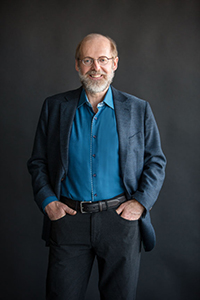Biography

Dr. Carl O. Pabo received his B.S. from Yale in 1974 (summa cum laude) and his Ph.D. from Harvard in 1980. For several decades, he focused on the structure and design of DNA-binding proteins, with appointments as a Professor at the Johns Hopkins University School of Medicine (1982-1991) and MIT (1991-2001), and as an Investigator with the Howard Hughes Medical Institute (1986-2001). Given his contributions to molecular biophysics, he was elected to the National Academy of Sciences and to the American Academy of Arts and Sciences.
However, impelled by deeper questions about human thought and prospects for the human future, he resigned his academic appointments, reading and studying as widely as possible across fields of neurobiology, psychology, economics, history, philosophy, mathematics, political science, and current affairs. During this interval, Dr. Pabo had a Guggenheim Fellowship for work on “Theories of Thought” and had appointments as a Visiting Professor at Caltech, Stanford, Berkeley, and the Harvard Medical School. Through this inquiry, he always tried to understand both the theories espoused in each realm of knowledge and to follow/infer the underlying patterns of thought that led to each such assertion.
As work proceeded, Dr. Pabo recognized a critical mismatch between human cognitive capacity and the challenge of governance amidst the complexity of the modern world. This is not an easy gap to fill, but Dr. Pabo takes it as the most fundamental challenge of the human future. He thus focused on this challenge as he returned to Caltech as a Visiting Professor in 2017 and taught a course on “The World in 2050.”
Building on these insights, Dr. Pabo also founded Humanity 2050, a nonprofit institute that developed several new strategies to help deal with the challenges of the Anthropocene. He needed to close the organization in 2023 (due to a lack of outside funding and the administrative challenges of running a nonprofit), yet this actually accelerated the pace of work. This has given him more time to focus on further development and refinement of new “tools for thought” designed to help society think clearly amidst the complexity of the modern age. He currently has an appointment as the 2025 Andrew W. Marshall Foundation Scholar and is working to finish a short book on “Human Thought, AI, and the Human Future.”